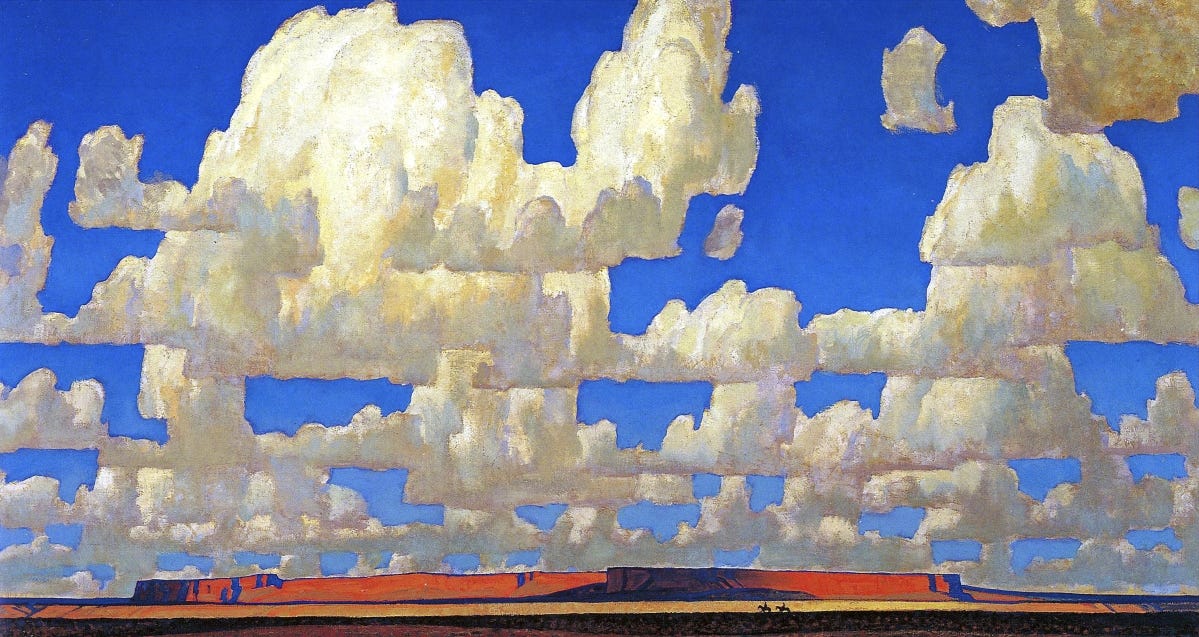Band on the Run
The Freedom (or Confinement) of an Escape
Band on the Run is a song recorded by Paul McCartney and Wings. It was written by Paul and Linda McCartney, and was released in 1973 on an album of the same name. I have always felt this song was, if not spiritual, at the very least, transcendent. There is something hopeful in it.

The song has three distinct sections.
The first section starts with a Dmaj7 chord. The lyrics feel hopeless. They are about being stuck inside forever, and never seeing anyone nice again. The singer hopes that one day, he’ll escape his confines. The section ends with a vamp between Dmaj7 & Gm.
The second section starts with an Am chord. The lyrics here feel dark, plodding. Like an atheist finding God in a foxhole, the singer swears that if he ever gets out of his confines, he’ll be content with merely a pint of beer a day.
The third section starts with a C major chord. The heavy electric guitar and dystopian moog synthesizer of the first two sections are replaced by the light strumming of an acoustic guitar. The music is happier and more free. The lyrics, too, convey release, and freedom. The opening line is: “Well, the rain exploded with a mighty crash, as we fell into the sun, and the first one said to the second one there, I hope you’re having fun.” It’s sunshine, and a cathartic burst of life-giving water.
A while ago a friend, Jimmy, got me a book called, “The Lyrics,” by Paul McCartney. In the book, Paul explains that “the band” in “Band on the Run,” refers to “a group of people who have escaped prison. A band of desperadoes.” He said, concerning the song, that, “certain aspects of it remind [him] of Butch Cassidy and the Sundance Kid.”
So, Band on the Run, despite the album’s cover image, is a western jail-break song about outlaws stuck inside a miserable, frontier prison. They just want to get out. Then, they suddenly find freedom through a jailbreak! With the prisoners gone, there’s no one left to hang. McCartney explains that the undertaker is outside his establishment ringing a bell, “because he’s upset he has so few customers.”
The song Band on the Run is full of hope, and promise, and is uplifting, because, as the singer explains, he and his band of outlaws are never going to be caught. They have no more troubles. Their frontier escape is absolute freedom.
“In the town they’re searching for us everywhere, but we never will be found,” the rabbit on the run says.
“And the county judge, who held a grudge, will search for evermore,” he goes on.
McCartney’s prison break song stands in stark contrast to the song of two other famous outlaws, Pancho and Lefty. These are guys whose skin was like iron, and whose breathes were as hard as kerosene. In the song, Pancho dies down in Mexico at the hand of the federales, and Lefty fades into oblivion living in cheap Motels in Ohio.
The song was written by Townes Van Zandt, and its most popular rendition was recorded by Merle Haggard and Willie Nelson, though I prefer Townes’ version. In Bob Dylan’s book, “The Philosophy of Modern Song,” Dylan elaborates on Townes’ song. He describes Pancho as, “a swashbuckling pistol-slapping big-sombreroed revolutionary,” and Lefty as a, “laid-back honey-voiced honky-tonk hero.”
Dylan imagines that, despite their differences, Pancho and Lefty were, “two reflections of each other. Neither of these guys thought about how to make a successful exit.”
Compare that to the band of outlaws that McCartney sings about. Townes’ bandits are broke down and tired. Out of the frying pan and into the fire. McCartney’s are having fun, laughing, running into the sunset, confident they will never be caught. They got away. They made a successful exit.

